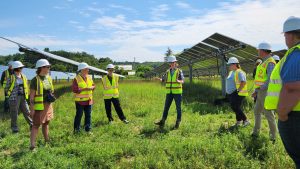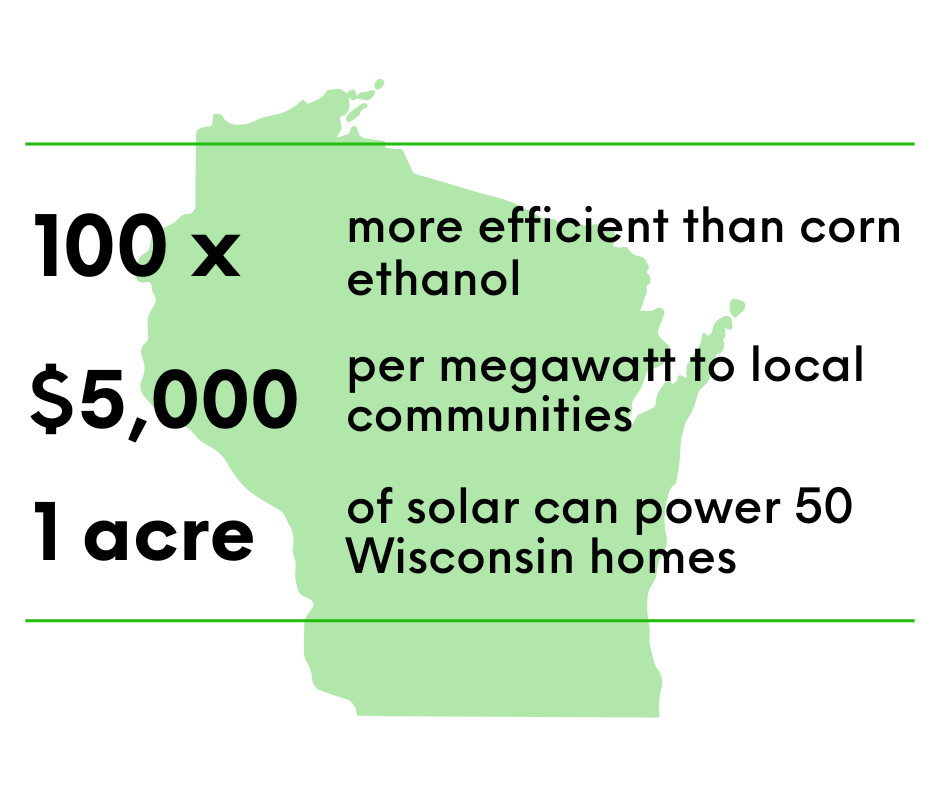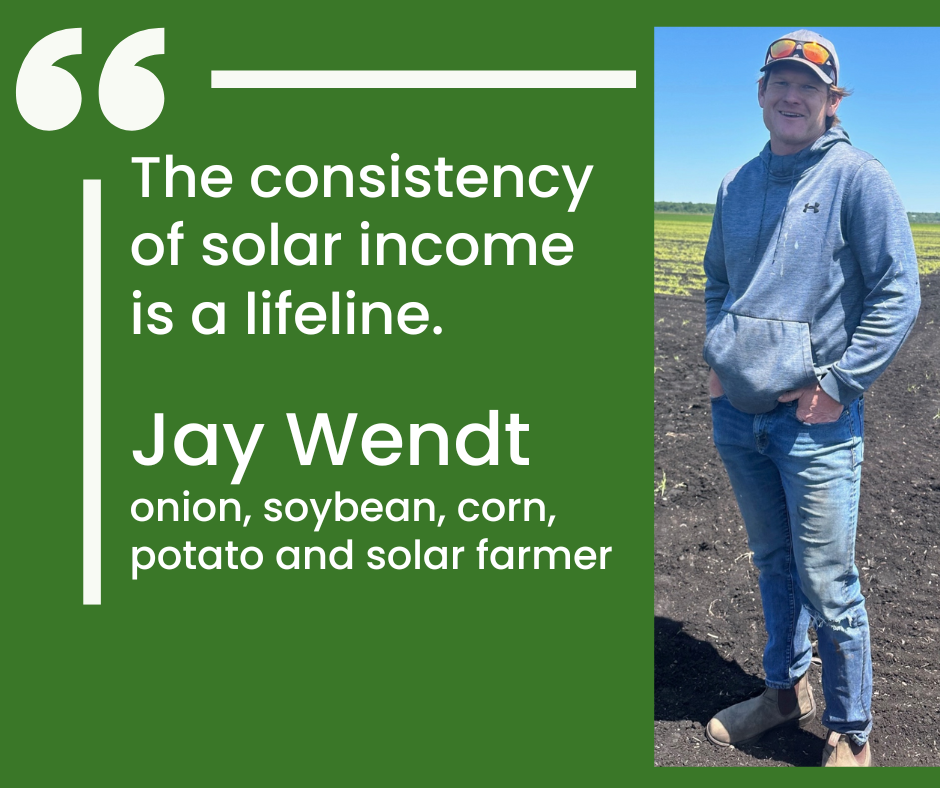Informational Sign-Up
Sign up to stay up to date on opportunities to learn more about how solar energy can benefit agricultural and rural communities.
Supporting Solar Webinar
Learn how you can support solar projects in Wisconsin in this webinar hosted by Clean Wisconsin and Renewing the Countryside.
Wisconsin's Solar Future
Solar farms are an important part of the clean energy transition in Wisconsin. Along with taking steps to save energy and installing more rooftop solar, we need to build over 1000 megawatts of solar in Wisconsin every year to reach a net-zero carbon economy by 2050. With solar farms in Wisconsin to date ranging from about 1 to 300 megawatts in size, we’ll need a variety of larger projects to meet that annual need for clean energy.
How do farmers benefit?
Many new solar projects are being developed in rural areas. For Wisconsin’s rural communities, solar offers real economic opportunity. Solar leases give family farms stable, long-term income in an otherwise uncertain profession, helping diversify income streams and keep families on the land.
How do rural economies benefit?
Under state law, local governments hosting any utility-owned solar project or a developer-owned solar project over 50 MW receive $5,000 per megawatt every year from the state’s utility aid fund. For a 300 megawatt project, that’s $1.5 million every year for about 30 years. That can help small communities meet urgent needs like investing in infrastructure or emergency services.
What about our agricultural land?
Wisconsin’s farms also produce non-food products, including ethanol. Clean Wisconsin’s research shows that, acre for acre, solar farms produce 100 times more energy than corn grown for ethanol. In fact, if we put solar on just one-third of the million acres used to grow corn for ethanol in Wisconsin today, we could meet all our solar demand for a net-zero economy and free up more land to grow food.
Support energy independence
Right now, Wisconsin sends $14 billion out of state every year to import fossil fuels. By capitalizing on a clean, renewable resource that shines down on the Badger State, we can keep more of those dollars here and reinvest them in our communities.
Support a healthy environment
Solar farms with perennial groundcover allow heavily cultivated land to rest, providing a break from the pesticide and fertilizer use that comes with conventional agriculture. Clean Wisconsin’s research shows that solar farms with native grasses and flowers planted among the panels improve water quality, provide habitat for pollinators, and regenerate soil health.
Why support solar?
- Cheaper than coal and gas
- Supports energy independence
- Safe for our health and environment
- Provides habitat for pollinators
- Builds soil health
- Economic opportunity for farmers and rural communities
Learn More
Farming the Sun: WI Farmers Find a Lifeline in Solar
Episode 27 of State of Change: Wisconsin’s environmental podcast!
It’s no secret, Wisconsin has been rapidly losing its small family farms, and with them, a way of life that’s defined much of our state for more than a century. But there is a lifeline coming.
About 30 miles outside of Lake Geneva, State of Change Host Amy Barrilleaux meets Jay Wendt to take a long walk on a farm that’s been in his wife’s family for decades. These days, the family is joining farmers across Wisconsin who are choosing to lease some of their land for solar.



